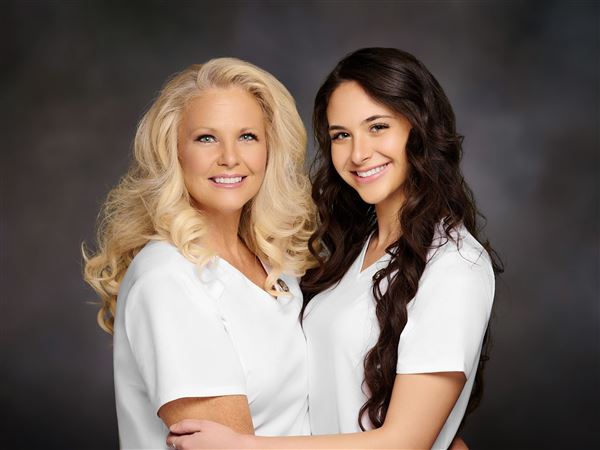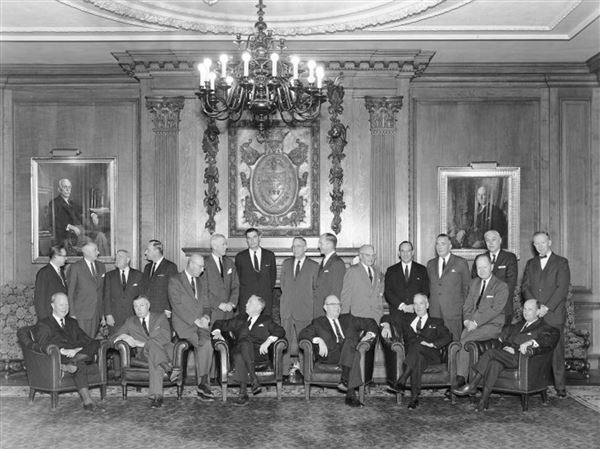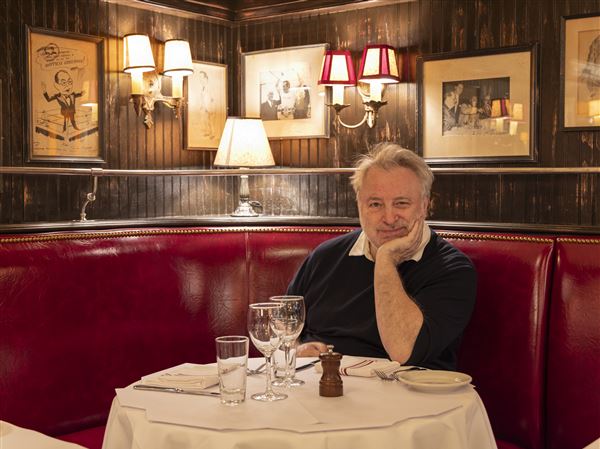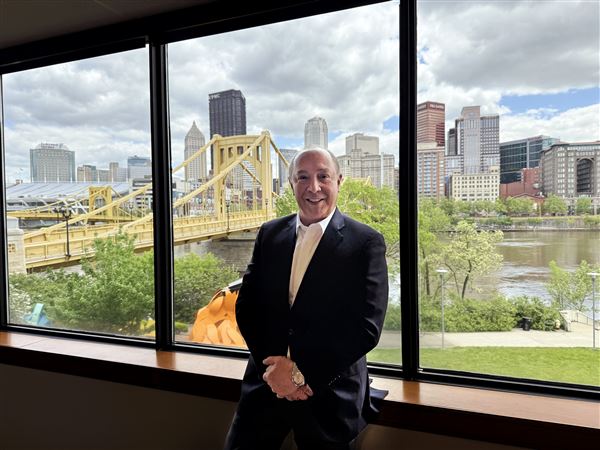Nancy Zionts, 56, has been chief program officer for the Jewish Healthcare Foundation since 1995 and chairwoman in recent years of the Pittsburgh region’s Coalition for Quality at the End of Life.

The coalition, or CQEL, is a collaboration among various health care-related institutions and representatives from government, social work, the legal profession and other sectors that share interest in raising awareness of end-of-life issues. One of its goals is encouraging people to prepare advance directives outlining their wishes concerning medical treatment if they have a condition that incapacitates them. Without such advance planning and indications, individuals are considered more likely to die in settings and with procedures they may not have desired, such as hooked up to tubes and wires in hospital critical care units instead of resting in their bed at home surrounded by family.
We interviewed Ms. Zionts about the topic in light of Saturday, April 16, marking National Healthcare Decisions Day, when the public is urged to discuss such advance care plans with loved ones and put those into writing.
Aging Edge: Why do we need National Healthcare Decisions Day?
Zionts: The day was created to educate and empower both consumers and providers to think about and act on care planning. The challenge you have is advance care planning is not something people necessarily want to think about or do, and there is a sense that we put it off until we absolutely have to do it. The tag line used for the day this year is, “It always seems too early until it’s too late.” We don’t really know — any of us — on any given day, when we start the day, how the day’s going to end for us. We don’t know when we’re going to run into something that changes our ability to make our plans known to people.
Aging Edge: How does having such a day change that?
Zionts: The best decisions are made not in a moment of terror but when we have a chance to think about something, consider all the options and discuss them with people we know best and who know about us. The idea behind National Healthcare Decisions Day is if we all have this conversation on the same day, there wouldn’t be a question of what the motive is. We’re not telling a loved one we’re starting the conversation because “I’m dying” or “I had a diagnosis” or “I’m concerned about a major change.” Instead, it’s, “I’m having a conversation to paint a picture of what is my best guess of what I would like to have happen to me, and I’m sharing this in case one day you need to act on my behalf.” We’re trying to normalize these conversations for everyone, whether in their 20s or 80s.
Aging Edge: In their 20s? You’re suggesting end-of-life planning is needed by everyone who is an adult?
Zionts: The practical aspect of that is most of the landmark cases we think about that have worked their way through the courts, and were difficult decisions about end-of-life, were not for older people with diagnoses that were life-threatening. They were mostly younger people who had something happen to them, and there was a dispute within the family over “What do we do now?” Or one member of the family said they knew what [the patient] wanted, and another said, “You may think that, but I’m the parent,” or some other sudden situation put a family into turmoil. I would recommend that everyone over the age of 18 designate your health care power of attorney or health care agent who would speak on your behalf if you’re unable to speak for yourself.
Aging Edge: And what if they don’t?
Zionts: The law states who that would be if you don’t designate someone yourself. If you’re married, it’s your spouse, and if you’re in a good marriage you may have no need to designate a separate person. But if you’re an adult child with parents, and you’re not married but maybe in a relationship with someone who’s your partner, you might want that partner to speak on your behalf, but if you haven’t designated them then under the law it’s your parents. So the first thing is to think about who should speak for you. Second is to speak to that person, who may or may not want to be your advocate. And third is if that person is not the one who would be expected [to be the decision-maker by law], then let the person who would be expected know your decision about someone else doing so.
Aging Edge: And what kind of discussion about your wishes should take place with that decision-maker?
Zionts: Tell them the vision, the picture, of what you want to paint, like, “I’m very interested in aggressive treatment,” or in “treatment that complies with my religious beliefs,” or “I’m not interested in length of life, I’m interested in quality of life.” You can use the Five Wishes tool that’s widely used, laying out five different things: the person I want making decisions; the kind of treatment I want or don’t want; how comfortable I want to be; how I want people to provide treatment to me; and what I want my loved ones to know. Those are five categories in this nice little booklet, which walks you through it in comfortable language, and the key is you can change it at any time.
Aging Edge: Didn’t the Allegheny County bar association and medical society come up with their own form as a combined living will and health care power of attorney for people that they can fill out themselves? Why use Five Wishes instead?
Zionts: We’re proud of that form [from the local medical and legal professions], which came with CQEL’s help, when those groups realized we were driving people crazy with different forms with doctors and lawyers involved. The ability to have that form is really terrific, because anywhere in Pennsylvania the the form is accepted and legal. The appeal of Five Wishes is it’s a little more conversational.
Aging Edge: But it’s just as applicable and legal in Pennsylvania?
Zionts: As with any contract, any form, anything legal you have, there’s only a problem when there’s a dispute. Most times what we’re trying to get at is what was the intention behind the information. What were the clues left by the person we’re trying to help? In the case of attorneys, doctors and family, they’re looking to do right by the person they’re trying to help. The disputes we hear about are when none of these documents have been used.
Aging Edge: Aren’t there cases where things still go wrong even when people fill out such forms?
Zionts: Sometimes the problem is not being able to retrieve the document when it’s needed, like if someone puts it in the safe deposit box. You need to put the documents in a place where everyone knows where they are. Mine are in the kitchen in the top drawer of the hutch, and everyone in the family knows it. Some people put them in a Ziploc bag in the freezer.
Aging Edge: What if the person designated as health care power of attorney doesn’t want to follow through on the person’s wishes?
Zionts: That’s more likely to happen if their first time seeing Mom’s wishes is when they’re in a moment of terror, and they may be a little shocked in finding out that Mom doesn’t want CPR. That’s a reason to have these conversations beforehand, and it isn’t always easy — sometimes a parent is ready to bring it up and an adult child isn’t ready to hear it, and sometimes the adult child is ready to bring it up and the parent isn’t ready. National Healthcare Decisions Day is the day anybody can bring it up. Does it make it any easier to hear about someone you love someday dying? No, but if you have a hard time being a person to make these kinds of decisions, then maybe you shouldn’t have been named the decision-maker.
Aging Edge: Sometimes there are cultural differences that affect how people feel about end-of-life care. (Some surveys have shown concerns by minorities and people with disabilities about their lives being valued less by the medical community.) Shouldn’t those be respected, or how do you overcome those?
Zionts: No one is being forced to fill these documents out in one direction or another. I’m agnostic as to whether somebody wants to say they want to have a full code (meaning all possible treatment to prolong life) or indicate they don’t want to have CPR. That’s their personal decision, but that should be made indicating what they want given the likelihood of whether CPR will restore a full quality of life. On TV shows you may get the impression that everybody comes back from CPR to living a full life, but the reality is quite different. But if people want to say they would always want CPR if it’s available to them, and their family members are informed of that decision, I respect that.
Aging Edge: Despite all of the encouragement given by you and others, studies have shown that perhaps as few as 26 percent of adults in the U.S. have written down advance directives. Is that disappointing? Why isn’t it higher?
Zionts: I view it as a positive trend on the way up, because before it wasn’t even a blip on the radar. The goal is to continue every year to see that number go up. My goal at the first level is that people have awareness and conversations. The goal is not the form itself, but in making sure a person’s goals at end of life were matched by the actions and circumstances that occurred.
Aging Edge: Has Medicare’s new reimbursement this year to cover doctors’ time in having such conversations with patients been helpful?
Zionts: There’s not a lot of data yet about the Medicare-reimbursed conversations. But I have not heard one horror story from anybody about anyone asking for a conversation with a physician and not getting one, or else having a poor conversation. We didn’t expect people to be lighting up at the chance to have these conversations, but it’s a great opportunity for physicians to be compensated for their time when doing so and not have it be crammed in.
Aging Edge: What if people just don’t want to have these conversations because they frighten or sadden them? Is that necessarily so terrible?
Zionts: Then they won’t have them. The goal is not to force people to have conversations. It’s to encourage them and make tools available to them.
Aging Edge: And as a strong advocate for this, when did you do your own end-of-life planning?
Zionts (chuckles): I’m not even embarrassed to tell you that after many years in this field, on April 16, 2015, National Healthcare Decisions Day, I completed the documents at our office. We had them out for everyone, so I took out one of the Five Wishes forms and filled it out. I had had conversations with my family before and they were very aware of what I wanted — and my husband would have taken care of everything I wanted — but I felt a responsibility to put my wishes to the family into writing. It’s important.
Gary Rotstein: grotstein@post-gazette.com or 412-263-1255.
First Published: April 15, 2016, 4:00 a.m.














